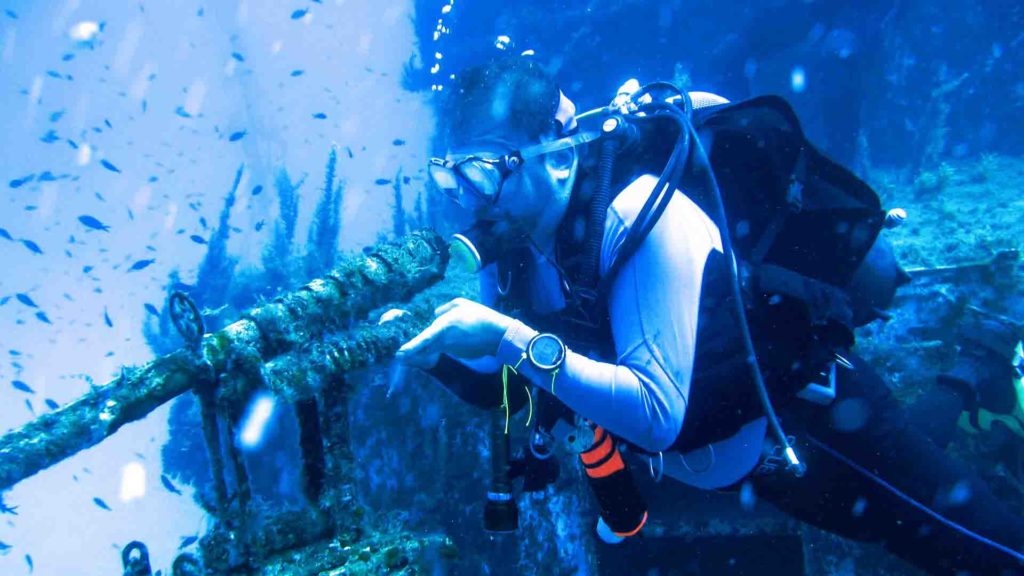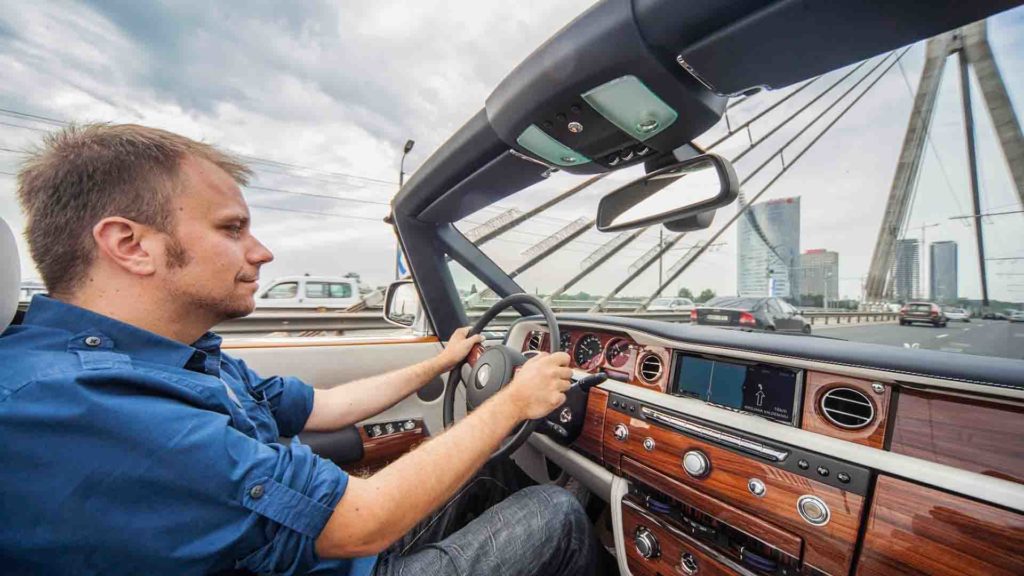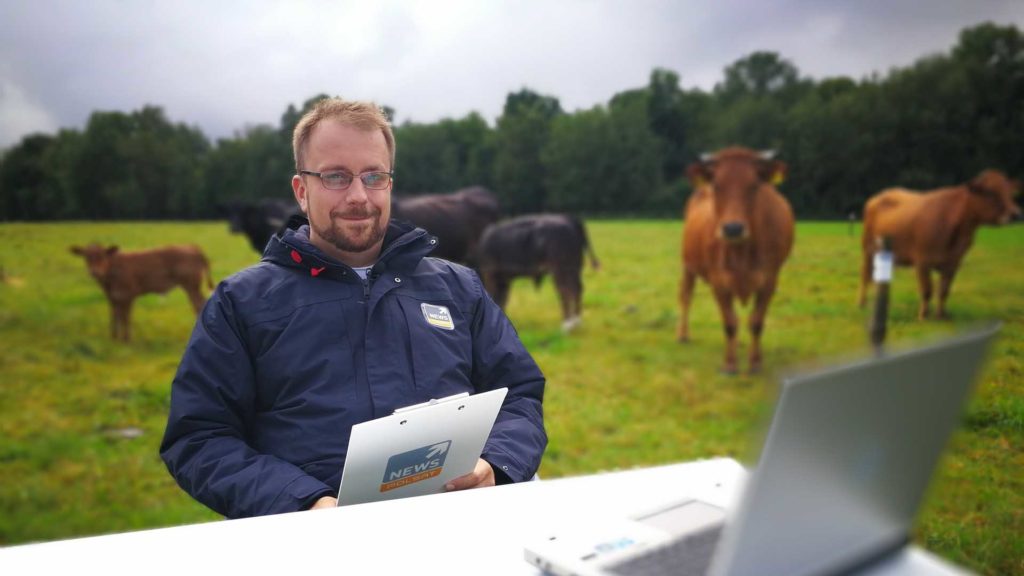Back in 2008 when Wojtek Brzezinski pitched Poland’s Polsat News on his idea to create the country’s first weekly science and technology news television show, he didn’t expect to have to wait three years to get the project greenlit — and then be asked to have the pilot episode ready to air one week later.
The show, called “Horyzont Zdarzen,” or “Event Horizon,” debuted with an episode about NASA’s Curiosity Rover. Each episode focused on a series of space- and technology-related concepts, with Brzezinski and his skeleton team of three other contributors taking turns interviewing experts. At its peak, the show amassed 100,000 views per week, and Brzezinski hosted it for six years. “I was absolutely convinced that, you know, I would run out of ideas, maybe after two weeks. But I managed to do around 300 episodes,” he says.
Six years later, Brzezinski’s ideas are still flowing, and they’ve brought him all the way to MIT, where he is currently a fellow in the Knight Science Journalism Program.
At MIT, Brzezinski is diving deep into the world of technology ethics and doing preliminary research for a book about cybersecurity, topics that he expects will keep him brimming with ideas for decades to come. “The speed of development of various technologies connected with AI is so rapid that by the time I finish writing this book, there’s going to be like, 20 different topics to handle,” he says. “So, I’m pretty sure that this is something that I’m going to be interested in for a long, long time.”

Brzezinski stumbled into journalism much the way he stumbled into hosting a TV show. After reaching the finals of a national English language competition in Poland as a high school student, he decided to pursue a journalism degree at Jagiellonian University in Krakow. Two years later, he was hooked and began interning at TVN, a free-to-air television station and network media entertainment group.
“I ended up working for the station for five years, and for various other news teams for the next 15 years, so you could say I kind of got trapped in journalism by accident,” says Brzezinski. “But it was a happy accident.”
At TVN, Brzezinski was part of the investigative team that researched stories about self-built aircraft, hijacked airliners, mass document forgeries and hot air balloons. Soon after, Brzezinski went on to work with various news teams at TVP, the Polska Times, Logo Magazine and other outlets as a reporter and freelancer. One accomplishment he lists on his CV is “not scratching a leased Rolls Royce.”
After launching “Horyzont Zdarzen,” Brzezinski became interested in cyber security and AI. In 2018, he published a book with co-author Agata Kazmierska called “Strefy Cyberwojny,” or “Cyberwar Zones,“ which deep-dives into the world of virtual threats and how to avoid them. Soon after, he earned a bachelor’s degree in cybersecurity from Collegium Civitas in Warsaw.
Now, as a Knight Science Journalism Fellow, Brzezinski is looking to even more deeply probe artificial intelligence and its effects on society. Specifically, he’s interested in how algorithms, big data analysis, and machine learning are changing the way people live. Brzezinski says his attitude toward the technologies has changed since he co-wrote “Strefy Cyberwojny.” He’s come to believe that, while AI has brought many great advances, it is difficult to regulate — and rife with ethical challenges.
“Take warfare, for instance. We’re on the cusp of developing the code, the law, so lethal autonomous weapons systems that could make the decision about killing a person without the human in the loop,” Brzezinski says. “I think we did have the first automated machine guns in South Korea a couple of years ago. But you know, there’s so many ethical and legal and political questions over there that the United Nations has been trying to regulate lethal autonomous weapons for years now.”

Brzezinski says he is currently working on a sequel to “Strefy Cyberwojny” that will address these and other issues. He’s also using the fellowship period to pursue a passion project of sorts: delving into the stories of ambitious technological dreams that either never came to be or were abandoned temporarily — like flying cars and fusion power.
“I’m interested in why they did not come to be,” Brzezinski explains. “Was it that, you know, the initial premise was wrong? Was it that we decided that that was not what we are going to focus on at the time? I think that’s super interesting.”
“Right now,” he says, “I’m trying to narrow down the list of topics.”
Elizabeth Gamillo is a student in the MIT Graduate Program in Science Writing. She was previously a daily correspondent for Smithsonian and wrote for Science magazine as their 2018 AAAS Diverse Voices in Science Journalism Intern.





http://presseservice.pressrelations.de/
Meet the KSJ Fellows: Wojtek Brzezinski